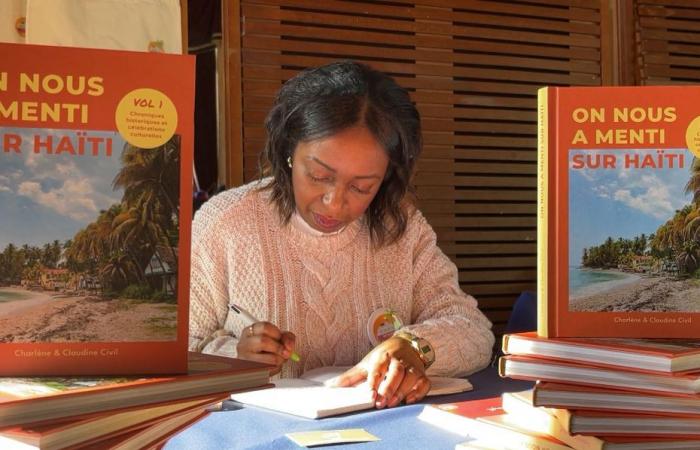Far from the negative image reflected by the media, Charlène and Claudine Civil, two Franco-Haitian sisters, wrote a book about their island to recall its turbulent history, but with notable and positive figures.
Is the history of Haiti taught well enough at school and through the media? Two Franco-Haitian sisters, Charlène and Claudine Civil, born in Paris, answer this question with a book with a slightly provocative title, We were lied to about Haitiwhich reflects their frustration in their search to know the country of their parents.
“It is the result of a quest for identity”, explains Charlène, the eldest. “We were missing the Haitian part that we looked for in history Books. In our school career, we omitted certain essential historical pages of Haiti which allow us to understand the history of France.” For example the debt inflicted on the first black republic to make it pay for its independence.
•
©L.Otvas
Abundantly illustrated, self-published, We were lied to about Haiti is nothing like a university thesis. It is rather a popular work which is aimed, among others, at a young audience. “We know that our experience is not unique. Those who are like us have certainly felt the same lack.”
Supervised by Damien François, the founder of the Étoile college in Port-au-Prince, the book retraces the most striking and significant pages of Haiti starting from the pre-Columbian period. The decisive episode of the Battle of Vertières in 1803, which saw Haitian troops beat the Napoleonic army commanded by General Rochambeau, is of course recounted. It led to the proclamation of Haiti’s independence the following year. We also discover the active role played by Haiti in the Caribbean, notably when the young country helped the revolutionary Simon Bolivar who fought for the independence of Venezuela, Peru and Bolivia.
Finally, after several trips there, and struck by the diversity of the landscapes, far from the image conveyed by the media, the two sisters wanted to reestablish their truth about the tourist heritage of the island. “Haiti is not just Port-au-Prince. Here, there are mountains and waterfalls.“Claudine, specialized in communication and international solidarity, takes the opportunity to recall the perverse effects of voluntourism, this form of tourism which combines travel and voluntary commitment without keeping its promises. “The prices of the stays are high, but in the end, the impact on the country is almost zero. We realized on site that certain associations were not reliable.” This is why the authors advise favoring responsible tourism.
Books






